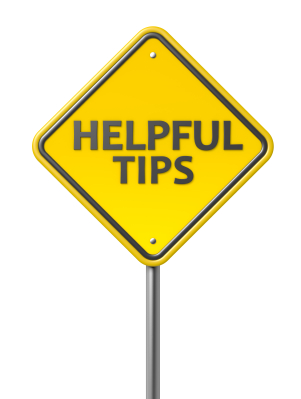The one thing people are the most liberal with, is their advice.
– Francois de Rochefoucauld
You’ve probably seen Wisconsin news anchor Jennifer Livingston’s on-air response to a letter she received from viewer Kenneth Krause. In case you missed it, Krause told Livingston that, as a role model for young girls, she should lose some weight.
People rushed to defend Livingston, including on-air personalities at competing stations. The anger towards Krause was compounded by a Facebook photo released by the media showing him in a cool guy, “I’m so fit” mountain bike photo – complete with tank top and bulging biceps (as described in several media outlets). Krause was even kind enough to offer his time to work with Livingston if she needed/wanted his support.
Giving unsolicited advice is one of the worst things you can do. When someone “offers” his/her advice without asking, it conjures up three things:
You’re Arrogant: Even if you have a PhD or are a subject matter expert on the problem, or your second cousin had the same problem, don’t open your mouth. In offering your advice without being asked, you’re assuming the person wants or needs to hear from you and your “expertise.”
You’re A Know-It-All: No two problems, situations, or perspectives are usually the same. Just because it sounds like the same issue does not mean it is. The fact that we’re thinking of filing for bankruptcy does not mean you can give me secondhand information that your co-worker gave you about his bankruptcy. If I was given a certain medical diagnosis, you don’t have to share with me about how your wife’s cousin’s best friend had the same thing.
I’m Really Not Looking For Advice: I may be talking a lot about my problem but I just want someone to listen – not give me Dr. Phil advice. As a friend, co-worker, neighbor, family member, etc., I feel comfortable enough with you that I can just unload. I’m feeling better already. Please don’t ruin it with your personal story or parable with a lesson wrapped up in it. Sometimes an attentive and empathetic ear is all a person needs.
So what’s a well-intentioned person to do?
Listen: Just be quiet and listen. Listen to the tone of the person’s voice and pay attention to their body language. This can be difficult at first. Besides what the person is saying, the non-verbal cues offer a ton of information as to whether they’re looking for advice or not. Again, maybe the person is just looking to unload or vent. If so, your job is to empathize and listen.
Just Ask: Simple enough, right? Not so simple, though. Asking a person if he/she wants advice can be awkward. Make sure you approach it with humility, kid gloves, and a genuine empathetic tone. I usually approach it in the dopey friend manner: “Dang man, that sounds terrible. Check this out, I went through the same thing and it turned out OK. Want to know what happened?”
Don’t give advice you wouldn’t follow yourself: This is called being a hypocrite. You lose immediate credibility with the person if you tell them to do something you never have done or failed to do yourself. This is probably like getting work advice from someone who’s been fired from their past six jobs or exercise tips from your smoking, 40-pound overweight neighbor.
It’s not about YOU: Seriously? If you go off-road and start talking about yourself, go immediately back to number one. BE QUIET. It’s bad enough your friend is going through whatever he or she is going through. Don’t compound the problem by making it about YOU. When you do that, you minimize the other person’s significance and situation. A year ago, my wife spent a few days in the hospital. The “chaplain” was making her rounds, checking on patients and seeing if they needed anything. After a quick “Hello, how are you doing?” the “spiritual advisor” went on for 20 minutes about her life. She then went on to other rooms where we could hear her repeating the same things. It’s not about you.
Lastly…the unsolicited advice letter (Krause-style) is a horrible idea. Putting things in writing (again, unsolicited) has the same pitfalls as poorly written e-mail. Because the person is not there to see you, your language and the tone and overall objective of the letter may not come across as you intended. So unless you’re extremely close or have written in the past to this person, be careful.
What happened the last time you gave (or received) unwanted advice?

